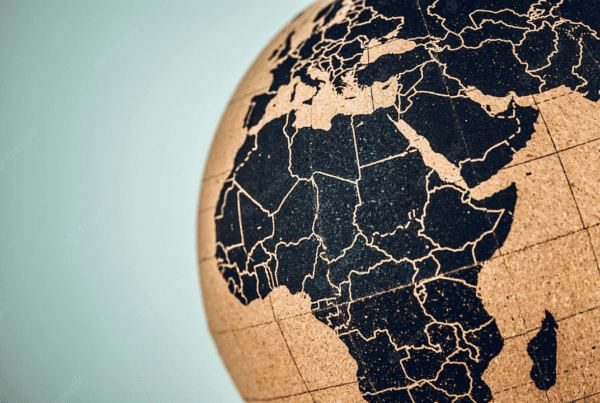By Ken Schoolland
For good reason people ask how nations can become more prosperous. Usually the start is “Why is there poverty?” But the real question should be “Why is there wealth?” Poverty is the natural condition of all peoples of the world throughout history. Only in the past couple hundred years have we seen an astounding rise in the amount of wealth per person in some countries while others still languish in ancient poverty.
The Fraser Institute of Canada approaches this question with the Economic Freedom of the World Index (EFW), analyzing conditions that give people incentives. In other words, what conditions allow people to benefit most from the creativity and work that produces wealth? They look annually at (1) tax rates, (2) legal protections for contracts and property, (3) inflation that undermines sound money, (4) openness of trade, and (5) regulatory restrictions.
Hong Kong, Singapore, and New Zealand typically rank at the top, while Myanmar, Venezuela, and Zimbabwe are often at the bottom. North Korea would probably be dead last if any data could be gathered. Nations in the top quadrants produce much more wealth per capita, higher growth rates, higher literacy, and lower rates of infant mortality than nations at the bottom.
Growth matters. Brazil, with all of its resources, increased wealth per capita fourfold from 1950 to 2000. Hong Kong, with a lot of people in a small space and no natural resources, increased wealth per capita 36-fold in the same period of time. Hong Kong is now one of the wealthiest places in the world per capita, richer than Great Britain, its former colonial ruler.
China is coming up the EFW ranking to 107 out of 144 countries, but it still ranks below Sri Lanka at 100 in 2010. So how could China have had such astounding economic growth in recent years? China is really big and all of its provinces have a greater population than most nations of the world. Luckily for China, economic zones along the east coast rank even higher on the EFW Index than Hong Kong and Singapore. These provinces are the engines of economic growth, while many other provinces of China would rank at the very bottom of the EFW Index.
Because of this diversity of growth in China, people have been moving by the millions from the stagnant regions to the growth regions. That demonstrates a sixth factor in economic growth that should be considered even more important than all others: openness to migration. It was openness to migration within China that allowed the growth that Hong Kong derived from decades of openness to migration.
Openness
According to Francesc Ortega of Queens College in New York and Giovanni Peri at the University of California, “Openness to knowledge, skills and ideas from the rest of the world may be one of the most important engines of economic growth, and technological advancement for a country….We show that openness to immigration … is a strong predictor of its income per person … [and] works much better for immigration than for trade….”
Then why do nations of the world fear migrants? Nearly every nation welcomes, encourages, and even battles for the import of barrels of oil. Yet every nation obstructs the “import” of labor — the in-migration of human beings.
Surely people are more valuable than barrels of oil. People have arms and legs and brains. They can do so much more than barrels of oil. Not only can people create wealth, but people can also reproduce to make more people. Would that barrels of oil could do that!
If barrels of oil could reproduce, it would be considered the energy miracle of the century — of the millennium! But when people reproduce more people with arms, legs, and brains, it is too often viewed as calamity. “Overpopulation!!” some people exclaim. “Too many people ruin the world!”
If it is truly a bad thing to have “too many people,” then people would be striving to get away from each other. But the history of the world has been of a general movement of people towards each other, moving from the sparsely populated countryside to crowded cities.
Of course it isn’t really people in general who are the problem. Rather, it is just certain people who are unwanted. Generally speaking, people do not object to the birth of their own children, even though children will be dependent on them for nearly two decades.
Newborns don’t speak the language, they don’t know the customs and manners of society, they don’t even have any skills, but they’re cute and they’re cuddly and they’re ready to please. Instead, the complaint is about other people’s children, especially children born far away or of a different color.
People do not object to others coming into a country so long as the visit is temporary. Visitors are welcomed and encouraged as tourists, business travelers, students, or guests at weddings and graduations. People coming across borders for longer periods of time are welcome if they have lots of money — thus automatic visas for those investing a million dollars and starting businesses.
For most of American history, the time of greatest growth, newcomers were openly welcomed. Among the foremost reasons for demanding independence were the barriers to entry that were imposed by Britain. A top complaint against King George III in the Declaration of Independence was, “He has endeavoured to prevent the population of these States; for that purpose obstructing the Laws for Naturalization of Foreigners; refusing to pass others to encourage their migrations hither….”
After the American Revolution immigration policy was unrestrictive for nearly a hundred years and the benefits to the economy were enormous. By the mid 1800s railroad companies, factories, and plantations sent agents all over the world to offer labor contracts to tens of thousands of desperate workers. That should be allowed today.
Japanese, Chinese, and Portuguese laborers worked longer hours, at lower pay, and under worse conditions than American laborers because it was a great improvement over the conditions in their homelands. That’s why they traveled to America. Any champion of labor should have cheered this improvement in the condition of workers.
The hire of Asian workers, however, did not go over well with a racially intolerant population that considered Asians a threat to white labor. It unleashed a flood of anti-immigrant hostility that began with the Chinese Exclusion Act and persists today with various people quotas. As Ayn Rand said, “Racism is the lowest, most crudely primitive form of collectivism.”
At the turn of the last century, first-class travelers on ocean liners stepped off the boat to waiting carriages. Third-class travelers were detained so they could be questioned and assessed for illnesses and mental disabilities that would disqualify them for entry.
Today, first-class travelers on airlines can buy $500 tickets for an hour’s flight from Africa to Europe and in 15 minutes they are whisked through passport control. Low-class travelers pay up to $5,000 to informal travel agents called “traffickers,” “smugglers,” and “coyotes” who lead them for weeks or months, crammed into leaky boats on stormy, pirate-infested seas or trudging across treacherous jungles and deserts — suffering, dying, or languishing for years in detention camps.
According to the United Nations Refugee Agency, the numbers of “displaced persons” in 2014 is now at 60 million — a record level in migration history. That includes 6 million in Colombia, 15 million from sub-Saharan Africa, 4 million from Afghanistan, 1 million in Ukraine, and a soaring 11 million in Syria. These figures do not yet include the multitude who recently fled from Burma.
Inviters and excluders
I assert that people have a right to move from one place to another as an exercise of their life and liberty, so long as they do not violate the rights of others in doing so. Migration has been natural to human existence. No one today lives where his distant ancestors lived. People have always moved to improve opportunity for the good life or to flee the tyranny and destitution of a bad life.
That was done (1) by moving to unowned lands; (2) by moving invited to land owned by “inviters”; or (3) by moving uninvited to land owned by “excluders.” Excluders may rightfully exclude newcomers from their own land. But they unjustly erect barriers on all government land, borders, and thoroughfares to prevent inviters from exercising their right to invite newcomers to their property for housing, refuge, entrepreneurship, employment, et cetera. Thus, excluders would deprive both newcomers and inviters of rights to life, liberty, and property.
It is the same with regard to goods. Excluders desire barriers to the trade and investment that may be exercised by inviters. When excluders use government to deprive inviters of the right to import products, it is called “protectionism.” Protectionism is extended to all the lands, not just the land of excluders. Again, excluders violate the life, liberty, and property rights of inviters and of those people around the world who wish to do business with inviters.
Excluders shoulder the burden of serious damage to humanity when they prevent potential newcomers from fleeing tyranny and from seeking opportunity and prosperity. Excluders also bear responsibility for lost commercial and charitable opportunities for the inviters.
Quotas on imported products are harmful to inviters, indeed, but even more harmful are the quotas on the movement of human beings. That is no small assertion. By enabling border guards, the excluder is complicit in the tragedy that befalls those displaced persons who are prohibited from being welcomed and hired by inviters.
Throughout the 20th century it was border guards the world over who refused visas and escape to millions of Jews, Catholics, Eastern Europeans, Armenians, and Chinese who were slaughtered instead of being allowed to flee tyranny. In the 21st century it is the desperate migrants from North Korea, Burma, Bangladesh, Somalia, Eritrea, Syria, and Afghanistan who are still suffering and dying by the tens of thousands each year.
These potential escapees are blocked by guards on both sides of the border. It doesn’t matter which side of the border a guard stands if the effect is the same: depriving liberty to those who wish to escape. It is even claimed that Australian authorities have taken the role of coast guard to the next level, actually paying smugglers tens of thousands of dollars to go elsewhere, even if that means allowing thousands to perish at sea. Likewise, millions of inviters have been deprived of the benefits that newcomers could bring: wealth, entrepreneurship, innovation, and hard work.
Ronald Bailey of Reason magazine cites the analysis of University of Wisconsin economist John Kennan in arguing that if all workers of the world were allowed to move “to places with higher total factor productivity (TFP), it would produce the equivalent of doubling the world’s supply of laborers.” Bailey goes on to say, “A worker in Somalia can produce only one-tenth the economic value of a worker in the United States. But as soon as she trades the hellhole of Mogadishu for the comparative paradise of Minneapolis, she can immediately take advantage of the higher American TFP to produce vastly more. Multiply that by the hundreds of millions still stuck in low-productivity countries”
In America, immigrants start new businesses at twice the rate of native Americans. They are hungrier and have all the attitudes of perseverance and courage that produce great wealth. All of this is sacrificed by fears of the excluders.
Courage and fear
Underlying every argument against the movement of people to freedom is fear. Such fears are sometimes openly expressed, but more often they are veiled or disguised. The fear of immigrants denotes the absence of courage. Courage welcomes competition. Fear rejects competition. Courage embraces the newcomer. Fear expels the newcomer. Courage champions liberty. Fear denies liberty.
It is useful to address these fears. That is complicated by the fact that stated fears, such as welfare, crowding, crime, et cetera may be excuses for more fundamental, underlying fears, such as an intolerance of races or religions. The voting public in the United States is indifferent to immigration from Britain or Canada, but openly hostile to immigration from Mexico, China, or Somalia. To overcome those fears is a monumental task in the short run, but not insurmountable.
Generally speaking, the world has gradually become more tolerant in a multitude of ways that would have seemed impossible just a hundred years ago. Globalization has exposed people to variety and offered experience that has generally reduced fears. A German student of mine recently said, “In Germany we have a saying: If you feel that an immigrant is going to take your job, the problem is not with the immigrant. The problem is with you.”
A starting point for religious people is to remember that most religions preach a humanitarian sympathy for those who are desperate to survive. This is why the Sanctuary Movement in the United States helped runaway slaves in the 19th century and helped illegal immigrants find refuge from bloody civil war in El Salvador in the 20th century.
Another argument against immigration is the “welfare magnet” theory. Excluders are convinced that borders cannot be open so long as generous welfare systems exist to draw immigrants like metal to a magnet. Following this logic, the state could also prohibit a couple from giving birth to a child so long as the state provides tax-funded benefits. They might claim that newborn children would incur an obligation of the state to tax everyone to support the health care, education, and a school lunch program for that child.
It is easy to refute the notion that welfare attracts migration. For instance, if it is true that welfare is the reason that migrants come to the United States, then it would follow that once they arrive in the United States immigrants would move from states with the least welfare to states with the most welfare. In reality, my research shows that the movement of migrants, both native and foreign-born, is in the opposite direction — away from states with the most welfare and to states with the least welfare.
That is probably because migration is a process that selects for the most diligent of workers and the greatest of entrepreneurs. It is migrants who are willing to take on all the hardship of a new, potentially hostile environment and leave behind all that is familiar in order to find safety and opportunity. Such migrants then boost the economies of their homelands with remittances. Low-income countries receive more than six times more in 2013 than they received in 2000, amounting to 8 percent of their GDP.
Sending money home as remittances is now three times as great as all overseas development assistance combined. And it is much more productive when sent by people who value the money because they earned it and sent to people who value it because they are family and friends. That is so much wiser than official aid programs that tax people who don’t know or care about the recipients and given to people who don’t know or care about the providers.
Entrepreneurs
Stuart Anderson, senior fellow at the Cato Institute, asserts, “Immigrant entrepreneurs are the heroes of a market-based economy, driving innovation and job creation.” Says Anderson, immigrants in the United States started 33 percent of U.S. venture-backed, public companies, between 2006 and 2012. Immigrants founded or co-founded such well-known companies as eBay, Altera, Facebook, LinkedIn, SanDisk, Google, and Tesla Motors.
When people can readily flee tyranny, tyrants have to change their ways to lure entrepreneurs, investors, and workers to return. That was the experience in Eastern Europe when the Iron Curtain fell and people could flee to the West. Tyrannies were transformed into democracies, controls on people were reduced, and then people and investment returned until growth in Eastern Europe outpaced growth in the West. Freedom not only brings prosperity to the inviters and escapees, but freedom sets in motion a changing environment that eventually brings greater freedom and prosperity to formerly enslaved lands.
A world open to migration is beneficial in so many ways. It is practical by bringing growth and the best use of talent. It is humanitarian by providing refuge and prosperity to the most desperate people of the world. And it is ethical, because it treats others as we would want them to treat us if we were in their shoes.
This article was originally published in the April 2018 edition of Future of Freedom.



